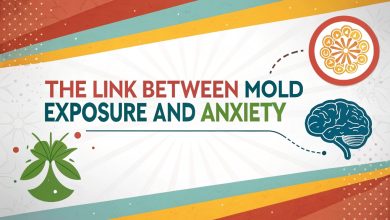Positive Thinking: Your Secret Weapon Against Stress

In our fast-paced, often chaotic world, stress has become a relentless companion for many. Whether it’s work deadlines, relationship worries, or global uncertainties, stress can take a significant toll on our mental and physical health. It’s no wonder we’re always looking for effective relief. While there is no single magic solution, a growing body of research points to the incredible power of positive thinking as a potent tool in stress management.
Understanding the Stress Response
When we encounter a stressful situation, our bodies instinctively launch into the ‘fight-or-flight’ response. This ancient survival mechanism floods our system with hormones like cortisol and adrenaline, preparing us to either confront the threat or flee. While crucial for navigating genuine danger, chronic activation of this response in modern life can become harmful. Prolonged stress impairs our immune system, increases our risk of heart disease, and contributes to anxiety and depression.

The Power of Positivity
So, where does positive thinking fit into this picture? While it might seem overly simplistic, research suggests that our mindset can significantly affect how we perceive and respond to stressors. Here’s how it works:
- Shifting Focus: Negative thinking often leads us to dwell excessively on the things that are going wrong, creating a downward spiral of worry and self-criticism. Positive thinking helps us retrain our attention towards opportunities, solutions, and our strengths. This shift in focus can reduce feelings of helplessness and boost our sense of control.
- Reframing Challenges: How we interpret events shapes our emotional responses. Positive thinking doesn’t mean ignoring problems, but rather, approaching them with a mindset of resilience. It’s about seeing challenges as opportunities for growth rather than insurmountable obstacles.
- Cultivating Optimism: Optimism and positive thinking are closely linked. When we believe positive outcomes are possible, we are better equipped to handle setbacks. This doesn’t mean blind denial of reality, but believing in our ability to find solutions. Studies show optimism can improve physical health and strengthen coping mechanisms.
- Breaking Negative Thought Patterns: Negative thoughts can become ingrained. Positive thinking helps us identify and challenge those thoughts, replacing them with more empowering and balanced perspectives. This interrupts the cycle of negativity that fuels stress.
Putting Positive Thinking into Practice
Cultivating a more positive mindset takes time and effort, but the benefits are well worth it. Here are practical ways to start:
- Practice Gratitude: Focusing on things we’re grateful for trains our brain to look for the good. Keep a ‘gratitude journal’ and write down 3-5 things you appreciate each day, no matter how small.
- Notice the Positive: Be mindful of the positive moments, no matter how fleeting. Savor the taste of your morning coffee, the warmth of the sun, or a kind gesture. Actively seeking the good enhances our ability to find it.
- Challenge Negative Self-Talk: We are often our own harshest critics. When negative thoughts pop up, question them. Are they helpful or realistic? Reframe them in a more balanced, compassionate way.
- Surround Yourself with Positive Influences: Spend time with supportive, upbeat people. Limit your exposure to negativity on social media and the news.
- Engage in Pleasurable Activities: Make time for things that bring you joy. Hobbies, relaxation techniques, and exercise release stress-reducing hormones and improve mood.
- Seek Help If Needed: If stress feels overwhelming, don’t hesitate to reach out for professional support. Therapy can teach valuable coping mechanisms, including cognitive restructuring techniques that promote positive thinking.
Remember: Changing your thought patterns is a skill. Be patient with yourself. The more you practice positive thinking, the more automatic it becomes.
The Rewards of a Positive Mindset
Positive thinking isn’t about denying challenges or forcing toxic positivity. It’s about choosing an empowering perspective that boosts resilience and well-being. Embracing positive thinking leads to:
- Reduced stress and anxiety
- Improved coping with challenges
- Increased optimism and hope
- Strengthened immune function
- Better physical and mental health
Positive thinking combined with healthy lifestyle choices empowers us to live more fulfilling lives. So, the next time stress looms, shift your focus, cultivate optimism, and find the power hidden within a positive mindset.




